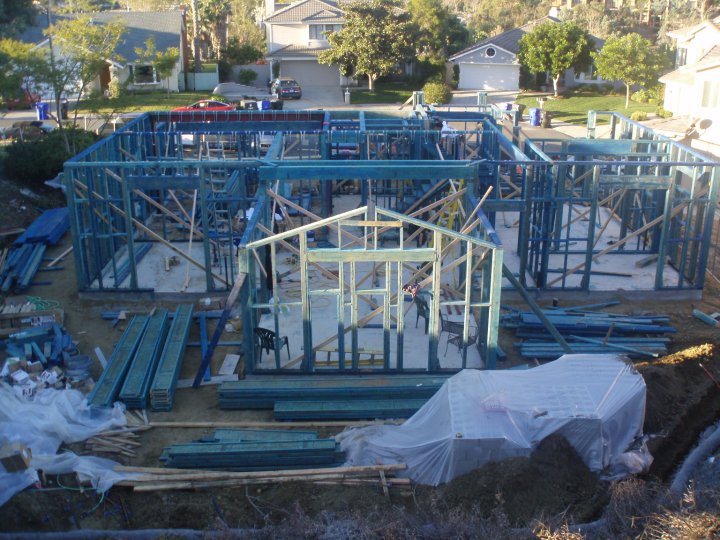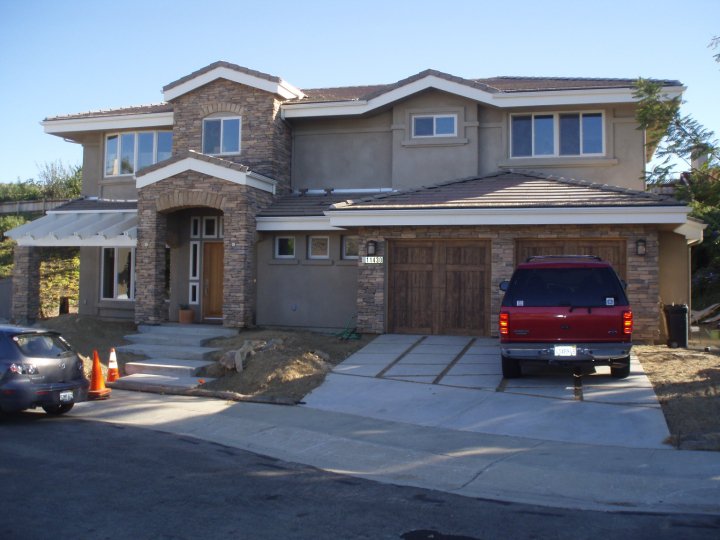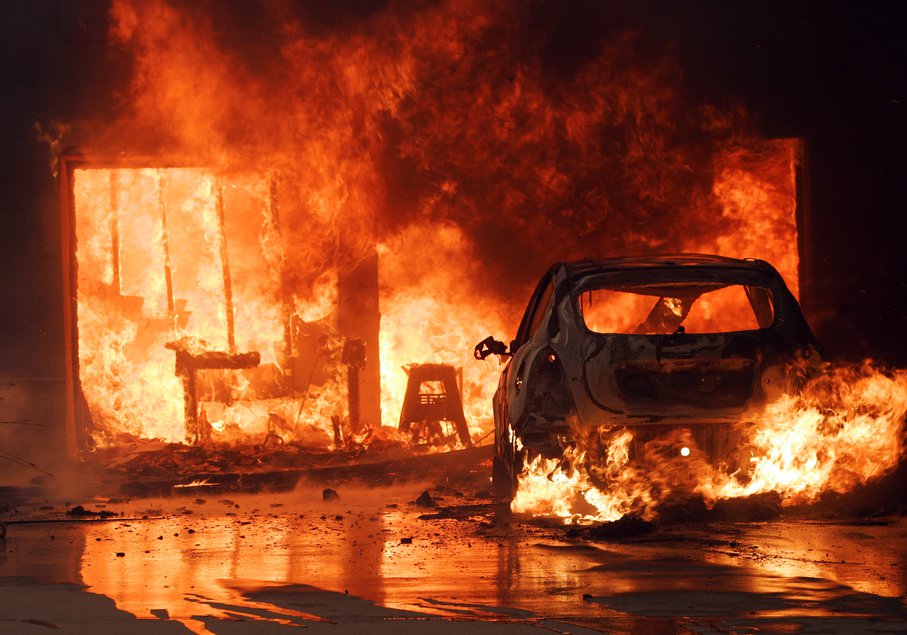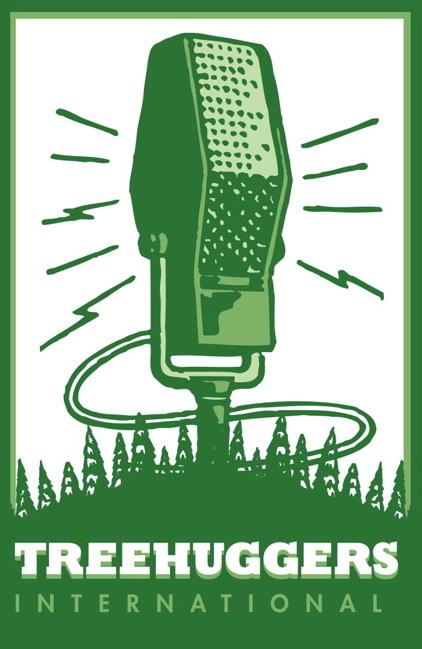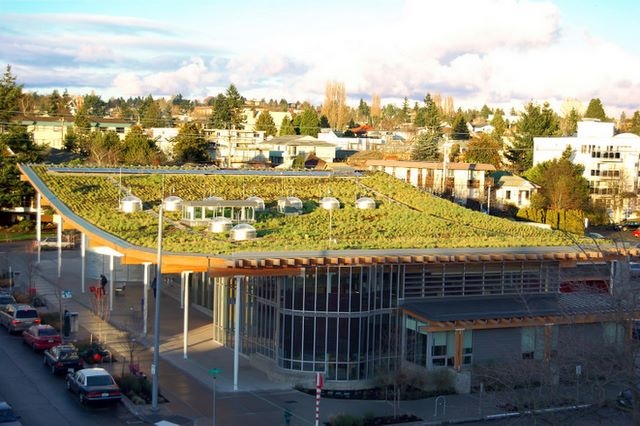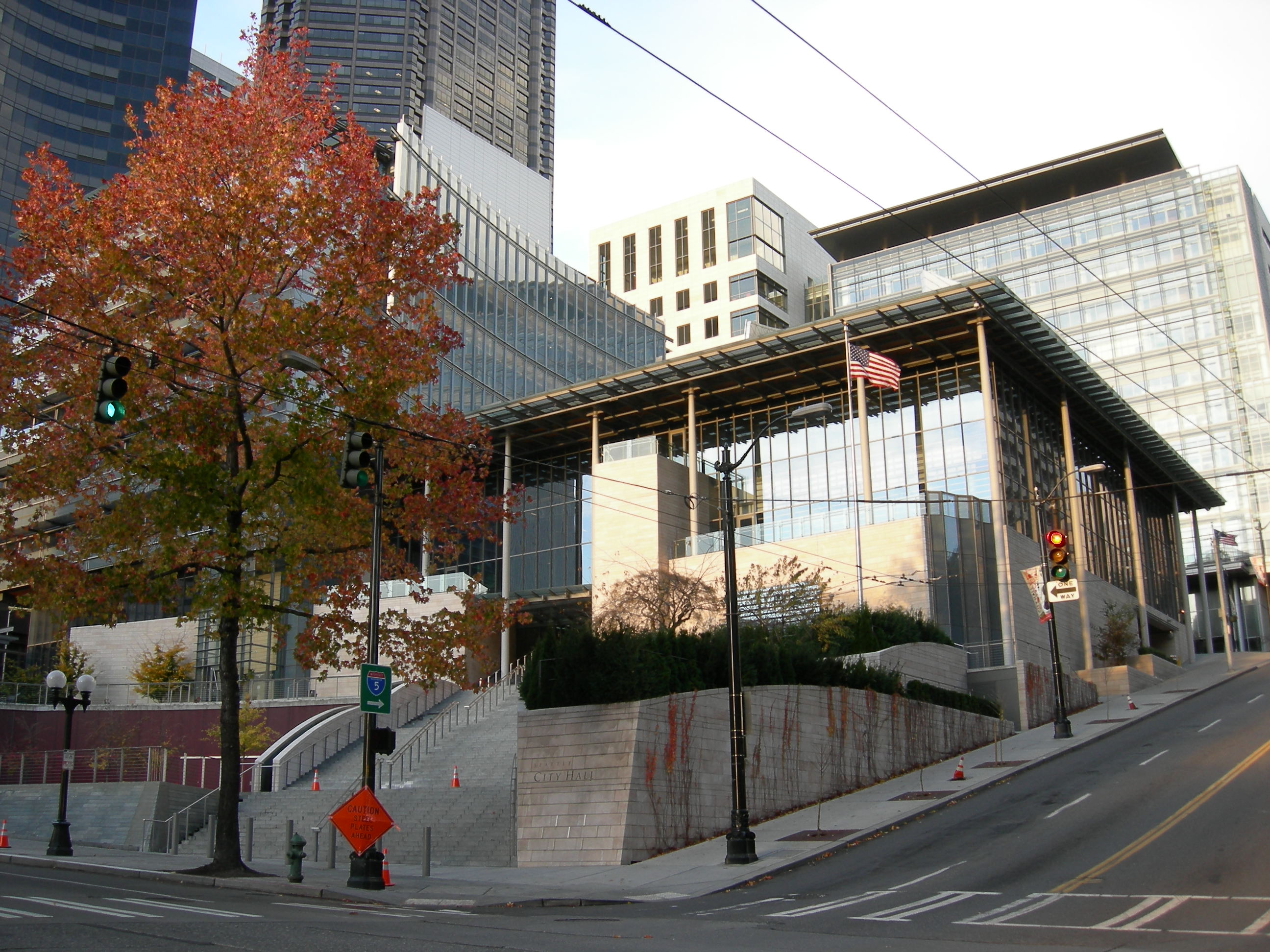LEED Construction In Residential Homes
Podcast: Download (Duration: 37:23 — 34.2MB)
Jacques Lord’s Re-Building Odyssey
A member of San Diego Environmental Professionals and a macrobiotic geologist who writes technical documents for environmental remediation projects, Jacques Lord first appeared on Treehuggers International in September 2007 to broadly discuss with Tommy the show’s goals and latitude for topics.
Barely three weeks later, Jacques’ world, and his family’s, was turned upside-down when they lost their home in the Westwood neighborhood of Rancho Bernardo to the Witch Creek Fire.
Opting for Half-Full on a Road Less Traveled
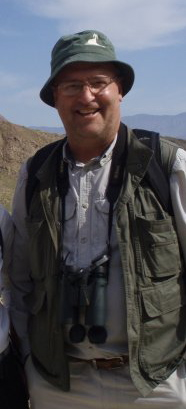 Nearly 18 months later, Jacques is nearing completion on re-building his home to the highest Leadership In Energy and Environmental Design standards, or LEED, as determined by the U.S. Green Building Council.
Nearly 18 months later, Jacques is nearing completion on re-building his home to the highest Leadership In Energy and Environmental Design standards, or LEED, as determined by the U.S. Green Building Council.
In just a few months, Jacques will become one of the first homeowners in Southern California who has built to LEED standards from the ground-up, and perhaps the only homeowner who lost a home in the October 2007 wildfires to re-build in such a manner.
In addition to describing the step-by-step planning and building of his new house, overcoming obstacles from insurance companies and reluctant builders, and trying to find availablility and the right quantity of green building supplies with help from the California Center for Sustainable Energy and Greenspark, Jacques also speaks candidly about the frightening morning when he and his family found their lives changed forever.
The Witch Creek Fire destroyed over 1,000 homes the morning of October 22, 2007, mostly in Rancho Bernardo but also across Lake Hodges In Escondido, in Poway and Ramona, killing two people and injuring nearly 40 firefighters.
Blown to the west through the San Dieguito River Valley by superheated, ultra-dry Santa Ana Winds, the Witch Creek Fire destroyed nearly everything in the 200,000 acres it scorched, with showers of fire-setting embers arriving a full hour before the tornadic firestorm cell itself.
Always an inspirational, thoughtful guest, it is a pleasure to welcome our friend Jacques Lord back to Treehuggers International. You can read more about Jacques’ harrowing story here, and “a future we never chose nor planned.”
More about this post at:
- Our House Is Gone, Jacques Lord essay
- Jacques Lord: Environmental Speaker and Magician, Gig Salad profile
- U.S. Green Building Council, official website
- SDGE Agrees to Pay $6.4 Million for Damages in Witch Creek Fire (Ramona Patch; 9/18/12)
- In Fire Blame Game, SDGE Wants a Blank Check (Voice of San Diego; 2/14/12)
- Tons of Questions (San Diego Union-Tribune; 8/3/08)
- Experiences Range from Nightmare to Construction Plans (San Diego Union-Tribune; 4/20/08)
- San Diego Failing At Fire Safety (USA Today; 2/19/08)
- Power Lines Blamed for Witch Creek, Rice Canyon Fires (North County Times; 11/17/07)
- Raging Wildfires Sweep California Communities, interactive map (USA Today; 10/26/07)
- Witch Creek Blaze Hits R.B. Hardest (Pomerado Times; 10/25/07)
- Infernos Surge Toward Coast (North County Times; 10/23/07)
- Hundreds of Homes Consumed In Wildfires (KGTV-TV; 10/23/07)
- Witch Creek Fire’s Toll: 750 Homes Destroyed Or Damaged (San Diego Union-Tribune; 10/23/07)
Green Building Practices, Part 2
The second part of our two-part series on sustainable design and so-called “green” architecture, we catch up with area architect.
Green Building Practices (part one)
Podcast: Download (Duration: 35:15 — 40.3MB)
Green Architects Craig Curtis, Mike Jobes and Brad Pease
We may on the verge of a new golden age of public buildings and architecture, as cities and governments recognize the value in building green. The surprising thing is it’s not just good for the local environment, or even aesthetically unique or pleasing – there’s also real science that demonstrates building green is cost-effective and keeps long-term operating costs down.
Cows On the Roof
If you’re a Seattle resident, you may have noticed grass growing out of the roof of the new library in Ballard. You may have also wondered what the EMP building might be used for should Paul Allen’s Experience Music Project ever vacate the premises.
Maybe you’ve heard the term “sustainable building practices” thrown around at parties and hipster gatherings, but what does it mean? What is “green building,” what is LEED, and how does it benefit the bottom line for clients of architectural firms?
Turns out, with all things green being hip these days, a lot of companies are coming to firms which specialize in green construction because building green is ultimately cost-effective and keeps long-term operating costs down.
Seattle-area architects Craig Curtis and Mike Jobes from the Miller/Hull Parntership and Brad Pease from Paladino and Company Green Building Strategies, all pioneering green building with their respective firms, come together on a special “green building” Treehuggers International panel.
Join us as our panel talks about the future of green architecture, city planning, European space vs. city models, modular buildings, smaller building “footprints,” and related environmental topics.
We’ll also have a laugh or two at the expense of the EMP Building. We’re confident Paul Allen will get over it.
